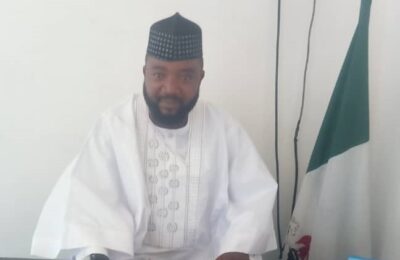Fake news, which is also known as junk or pseudo-news, is a type of yellow journalism or propaganda that consist of deliberate misinformation or hoaxes spread via traditional news media or online media. In the age of social media, it is everywhere and it is blurring the line between facts and fiction and at this critical stage of the novel coronavirus pandemic, Nigerian should not fuel this virus with fiction on their social media handle as we are often accustomed to during electioneering period.
The coronavirus outbreak has sparked what the World Health Organization called “infodemic” — an overwhelming amount of information on social media and websites. Some of it, accurate while some are downright untrue.
It is important to note here that most of the COVID-19 news we read online are downright untrue. These stories often been deliberately created to misinform people, whether for fun or to support someone’s ideology or political agenda or just some pure mischievousness.
There was a lot of divergent view when the former Vice president and the 2019 presidential candidate of the Peoples Democratic Party (PDP), Alhaji Abubakar Atiku tweeted that his son had tested positive to the pandemic COVID19, many Nigerians on social media put up a lot of wrong information with a view to mislead people with their fake reports that Atiku’s son was picture at the open places and Abuja club.
According to them, Atiku’s son attended Jema’a prayers and social gathering but his father Atiku through his Media Adviser denied the allegation which read in part “we urge the members of the public to disregard the perfidous information that the case accessed open locations. He was not at any lounge nor any other club in Abuja as been mischievously bandied. The case neither attended the Friday juma’at prayer nor any social gathering until his evacuation to Gwagwalada specialist hospital on the 20th of March, where he is being treated and managed.”
Also, it was reported by traditional and citizen journalist that Atiku’s son attended the recent Ibadan rally of the Peoples Democratic Party (PDP) where he interacted with many people.
According to report by Vanguard newspaper, senior party officials and government functionaries met with him and have been directed to go into self isolation. Oyo state government denied Atiku Abubakar’s infected son had attended the rally.
The minister of information and culture, Lai Muhammed has reacted to audio picture that went viral on WhatsApp that said Chinese are importing medical relief to Nigeria as the country is not much ready to fight the novel COVID19.
Lai said we are much ready and well prepared for COVID-19.
The minister described the audio as purveyors of fake news and disinformation usually ramp their acts. We are therefore urging Nigerians not to fall for the antics of purveyors of fake news and disinformation.
The folks who propel the COVID-19 fake news should note that the virus don’t have respect for poor or rich people, it doesn’t care about one’s political status or party. This is not a the time to tackle coronavirus with sentimental mindset.
Fake news can spread quickly online, in fact, false news spread faster on the social media than real news does. The reason being that the researchers may insert untrue statements to inspire strong feelings such as fear, disgust and surprise.
This dynamic could cause fake coronavirus cures and treatments to fan out widely on social media and as a result, worsen the impact of the outbreak.
If segments of the public turn to false treatments rather than follow the advices of trusted sources for avoiding illness like frequent hand-washing with soap and water, it could cause the virus to travel further and faster than it ordinarily would have done.
Misinformation that specifically targets your health system or your leaders who are trying to manage an emergency is a way of destroying, undermining and disrupting your health system.It is important to filter out false information and promote accurate information from credible sources like WHO, National Centers for Disease among others.
– Ojimaojo Y. Abubakar





